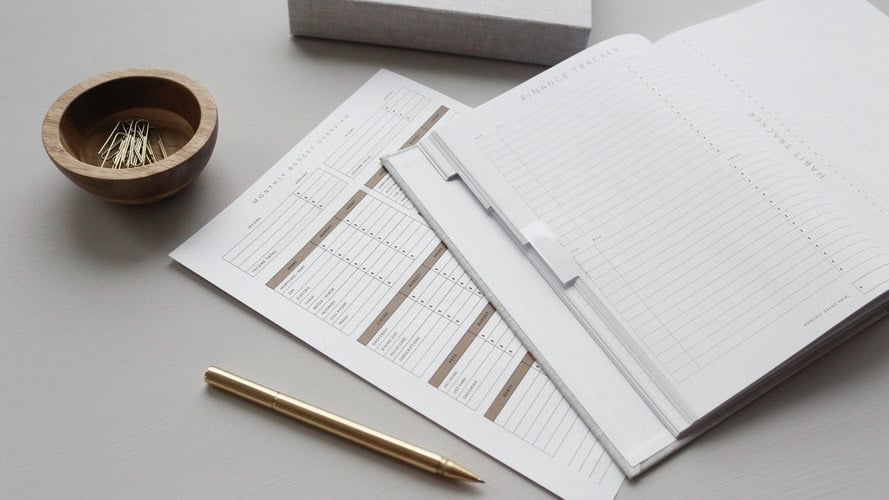Credit Tip Tuesday #37 - How to Budget & Make Money on a Fixed Income

If you’re living on a fixed income, it may be difficult to manage your day to day expenses. Whether you’re retired, on disability pay or work at a company that does not offer yearly pay increases or bonuses- there are countless Canadians who live on a fixed income. While you may feel as though there is no way to increase your yearly income, this is far from the truth.
That’s why Plastk has created a list of the best ways you can budget, save money and use your money to make MORE money.

Evaluate Your Needs.
The first step in budgeting on a fixed income is establishing your personal needs. You can do this by looking at what is necessary for your everyday needs and figuring out where you can cut costs. It’s important to start by creating a list of the parts of your spending that are needed for your mental, physical and spiritual wellbeing. This will help you look at what you are currently spending money on, so you can ensure that you are not overspending in one area. You should evaluate your needs first, as most of your finances should be allocated to this sector of your life.
Know Your Income

The first step to creating a budget on a fixed income is to understand how much you make. You also must understand how frequently you receive income. Once you understand this, you can start learning more about what your money currently goes towards. Once this step is completed, you can start understanding how to reallocate your income and where you can cut down on costs.
Know Your Bills
What Needs Should I be Looking at?
- Rent or Mortgage Payments

Rent or Mortgage Payments should be the first thing you look at in your budget. This area of your life is relatively fixed and should be the first thing you look at in your budget. However, if you own your home, there are ways you can reduce your expenses in this sector. For this, you can allocate 5-10% MORE than your usual mortgage payments for a set period of time. Although this may seem contradictory, it will save you more money in the long run. As we mentioned in other blog posts on debt, compound interest will cause you to pay a substantial amount over a period of time. If you slightly increase your monthly payment, you will end up paying far less compound interest in the long run.
2. Groceries

Groceries are another need you can evaluate. While this cost usually varies week to week, depending on needs, wants, sales and time of year- there are a few ways you can save money on groceries.
- Look for sales and coupons
Couponing or using points programs can help you save lots of money in the long run. Programs like First Grabber, PC Optimum, Rexall Rewards or Cupons.com , can assist you in getting the best price for your groceries.
- Buy in Bulk
Buying in bulk not only saves you money, because the cost-per-unit will go down, but can assist you in secondary grocery costs. This means that buying in bulk will save you more money because you will have to go to the store less.
3. Pay off Debts

Another cost you should consider is your debts. You should be working towards paying off your debts as soon as possible. As we’ve mentioned in countless other articles, compound interest can be a major cost. We’ve detailed exactly how you can pay these off in our budgeting blog, however, the basic premise is that you should start by paying off the debts with the highest interest or highest balance.
4. Look at Credit Fees

Credit fees can be extremely expensive. This is why you should look into credit cards with lower fees or ones that offer limits that you can manage effectively. Plastk Secured Credit Card, offers guaranteed approval, the ability to set your credit limit and has one of the lowest interest rates on the market.
We’ve also compared various credit cards in Canada so you can decide which is best for you.
5. Personal Care

Personal care is essential for your wellbeing. You should set aside some of your income towards personal care, like body wash, shampoo, haircuts, massages or other personal care services. Personal care is closely related to mental health, and should be treated as a need.
Non Necessities & Other Costs

- Savings
20% of your income should be going towards your savings. This allows you to have an extra cushion, in case any emergency arises or you require more money than you currently have in your checking account. This is a major expense you should consider when creating a budget.
- Pay for School Supplies
If you have a child, you also need to consider the cost of school supplies, tuition, emergencies, clothing and food.
- Maintain your cars and boats
Another irregular cost you need to consider is the cost to maintain your car, boat or motorcycle. If you live in a major city, with good public transportation, you may consider selling your car, to reduce costs.
How to Alter Your Budget

Now that you have a deep understanding of where your money is going, you can start thinking about how to alter your budget, to make the most of your money.
We recommend that you use the 50-30-20 method for spending your money. While we have various different methods to budget, which are listed in our budgeting blog, we find that this method is the best for new budgeters. However, we recommend that you alter this slightly if you’re living on a fixed income.
50% of your budget should be going towards your needs. This includes rent, food, utilities and any other needs for your everyday life. You can save money in this regard, by couponing, buying in bulk or only buying generic brand products. Shopping sales also helps you save money in the long run.
30% of your income should be going towards secondary expenses like personal care, healthcare, clothing and transportation. While in traditional 50-30-20 budgets, this goes towards wants, you should be spending less money on your wants if you’re on a fixed income. However, this does not mean that you can never treat yourself to your wants. Of this 30% you can allocate:
- 10% to personal and healthcare expenses
- 10% towards clothing and transportation
- And 10% goes towards other wants
20% of your income goes towards savings. This can help you buy major wants, like luxury vacations, a new car, new cellphone or even for emergencies. Having a strong foundation for savings will help you protect yourself from emergencies and help you purchase long term wants.
Budgeting on a fixed income is slightly different from a more traditional income, because fixed incomes tend to be far less than more traditional salaries. This is why it is so essential to understand where your money is going and where it comes from. By evaluating your current spending habits, you can understand where your budget is working and where it isn’t. It will also help you focus your income towards the parts of your life that require more money and lower spending on aspects of your life that do not require a high budget.
For example, altering your budget to put more money into savings, rather than spending that money on eating out, can help you save for the things you really want, like vacations or new cars. Making little changes in your life makes big changes in your life in the long run. By investing your time into understanding the Canadian financial system and your own personal financial habits, you will be able to advance in your own life and finances.

Know Your Accounts
The next step, of budgeting while living on a fixed income, is understanding your accounts. This includes:
- Your main checking account
This includes any and all accounts that you have with banks. Your checking account is usually the account your income will be deposited into and most of your money gets deposited to. Understanding this, helps you understand the base of income you will be working with. It also helps you understand where your money is going. In turn, you can better understand any mistakes you have made with your money.
- You Savings accounts
Your savings account is the next step to understand your accounts. If you don’t have a savings account, is essential that you create one as soon as possible. Having a savings account is one of the biggest aspects of being a successful spender and being financially stable.
- Credit accounts
This step refers to looking at any credit debit or credit accounts you may have. If you have a massive amount of credit card debt, you should be looking at paying off your debts as soon as possible. If you do not have a credit card, you may consider applying for one ASAP. We broke down some of the best credit cards you can apply for in Canada. Having a credit card helps to build your credit score and helps you understand how to manage your finances. Learning how to manage your credit card accounts is essential to being a successful and smart spender. If you’re curious about how to manage your credit, we have countless blogs to help you, listed below:
- Any debts you have
Paying off your debt is essential to being financially free. Part of your budget should be allocated towards paying off any debts you may have. The more you put off debt, the more debt you will collect. This is because of compound interest. As such, you should be paying off your debt as quickly as possible. This can also help you ensure that you’re spending less money on things that do not directly benefit you, like buying food or paying rent. Debt is the biggest reason why so many individuals suffer from financial stress.
How to Craft Your Budget
Using the sample amount of $2,500, we will create a budget for one person on a fixed income.
.png?width=2880&name=Email%20Elements%20(29).png)
How to Increase Your Income

Now that you have a budget plan for your fixed income, you may start understanding how to increase your income. There are a few ways you can do this.
- Get another job or do temp work
This is the easiest way to increase your income. This can include picking up extra shifts if you work or doing remote work from your home. There are countless websites that will allow you to work limited hours from home, doing very simple things, like answering surveys, editing articles or even reviewing products. This is an easy way to increase your income, so you can afford more of what you need or want.
- Invest
Investing is the best way to make the most of your money. We have written a blog all about investing in Canada, which you can refer to if you’re interested in getting started in investing. Your investment budget can come from your allocated savings budget. This will help you increase your savings and help you understand how the financial market works. Understanding the stock market can help you make more informed decisions on spending and build a strong foundation for spending. If you make a few smart investments, you may even be able to support yourself solely on investment income.
- Sell things in your home you don’t need
If the above options are not feasible for you, you may consider selling things in your home you do not need. This includes using facebook marketplace, poshmark or depop to sell old clothes, furniture or antiques that you no longer need. This can help you declutter your home and assist you in increasing your income.
The above points will help you, in the instance you do not make enough money to support your basic needs. These tips can help you to increase your income and ensure you can afford your lifestyle. If you’re struggling to make ends meet, it may be wise to complete a needs evaluation assessment.
What is a needs evaluation assessment?
A need assessment involves creating a list of your needs, wants and expenses, from most expensive to least expensive. Then you can go through the list and find any costs that are not needed or are costing you more money than you need to spend. You can then work on eliminating these costs entirely or looking for cheaper alternatives.
What is next?

The final step in creating a budget and making money on a fixed income is to understand that there are ways to increase your income and budget with the money you have. You do not have to go into debt, in order to pay for your basic needs and purchase your wants.
You can start by learning how to manage your money and the Canadian financial system. By reading our blogs and understanding the content we present, you’ll be on your way to achieving financial freedom. You may also consider getting a secured credit card to help you manage your finances in a more efficient way.
Secured credit cards are perfect for those on fixed incomes, as they allow you to set your own limit and offer guaranteed approval. This can help you keep on track with your spending and become more financially knowledgeable.
Understanding your financial situation is the first step towards making change in your life. You should be researching ways to save money and actively work towards improving your budget, if you want to become more financially literate. This means finding ways to increase your income, invest, save and spend in the smartest way possible. Although everyone's situation will be different, it is important to understand that nothing is permanent. If you are in a precarious financial situation now, there are ways out. By managing your finances in an educated way, you will be able to afford your lifestyle and save for the lifestyle you want.
Disclaimer: The content provided on the Plastk Financial Inc. Blog is information to help Canadians become financially literate and learn about credit. Plastk is not responsible for building or ruining an individual's credit score or credit rating. It is neither tax nor legal advice, is not intended to be relied upon as a forecast, research or investment advice, and is not a recommendation, offer or solicitation to buy or sell any securities or to adopt any investment strategy. Tax, investment, credit inquiries, and all other decisions should be made, as appropriate, only with guidance from a qualified professional.


